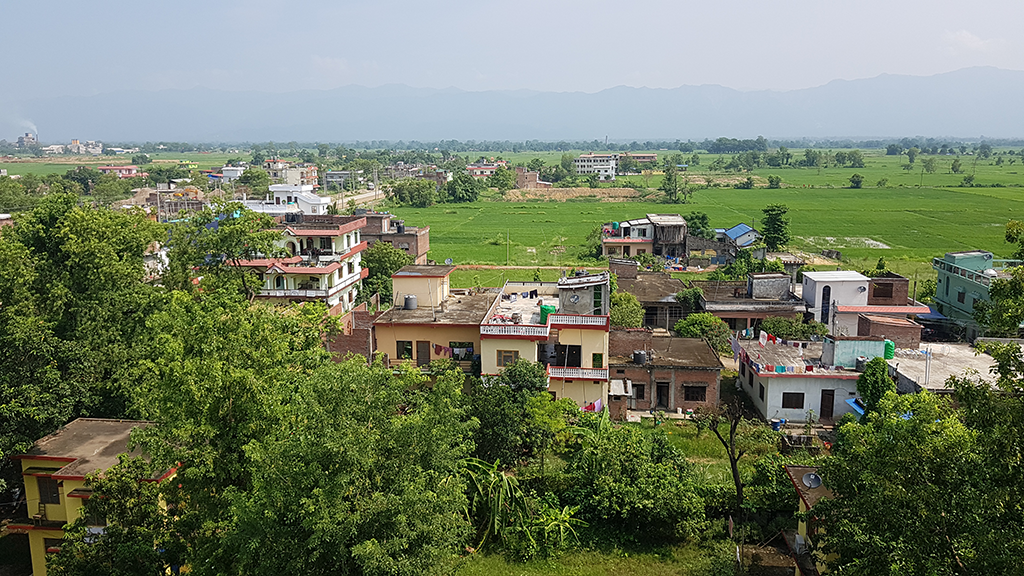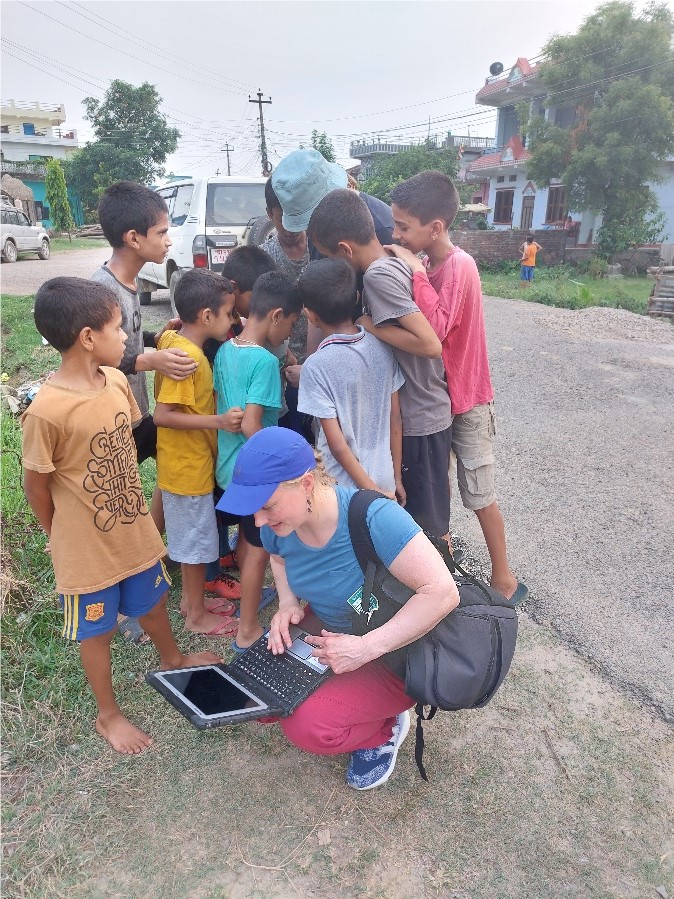Initially Challenged by the Coronavirus Pandemic, the NeAs Project Is Now in Full Swing, Looking for Solutions for Arsenic in Drinking Water in Nepal
Funded by Finland’s Ministry for Foreign Affairs, the ‘Towards arsenic safe drinking water in Nepal (NeAs)′ project strives to reduce the consumption of arsenic-containing drinking water in Nepal. The project supports its Nepalese partner organisation, Department of Water Supply and Sanitation Management,(DWSSM), in its efforts to help the local water sector operators in solving the arsenic problem. The goal is to provide support to the operations of the entire Nepalese water sector by increasing awareness of the arsenic problem in drinking water and providing guidance on arsenic mitigation. The project is implemented in cooperation with the Geological Survey of Finland (GTK) and the Finnish Environment Institute (SYKE).

High Arsenic Concentration in Groundwater Is a Global Problem
High arsenic concentration in groundwater causes environmental health problems in many regions. In Asia, high levels of arsenic in groundwater pose a health hazard to approximately 65 million people. Long-term exposure to arsenic from drinking water and food can cause cancer, skin lesions and other problems. The most important action in affected communities is the prevention of further exposure to arsenic by the provision of a safe water supply.
The arsenic in groundwater in Nepal is mostly of a geological origin. Arsenic is a metalloid element that occurs in the earth’s crust. Over time, arsenic-bearing rocks in the Himalayas have eroded, forming deposits in the Nepalese lowland regions (Terai) where they now cause high arsenic levels in groundwater. The pilot area of the NeAs project is located in the Terai in Western Nawalparasi (Province 5) which is one of the most affected districts. More than 10 % of the tubewells have the arsenic concentration over 50 µg/l that exceeds the acceptable level for maximum concentrations of arsenic in safe drinking water as defined by WHO, 10 µg/l.
Promoting the Expertise of the Partner Organisation
The Ministry for Foreign Affairs of Finland provides funding under the Institutional Cooperation Instrument (ICI) for projects that seek to strengthen the expertise of government bodies in developing countries. The objective of the NeAs project is to strengthen the capacity and expertise of the partner organisation in four focus areas:
- management of arsenic related data and data sharing practices between stakeholders
- conceptual representation of arsenic migration in groundwater together with guidelines and recommendations for the water sector in Nepal
- arsenic monitoring capacities and practices
- communication and awareness raising and increased networking among relevant actors
The Occurrence of Arsenic Goes Hand in Hand with Geological Conditions
The occurrence of arsenic is strongly linked to the hydrogeological characteristics of the project region. The geology in the region is very diverse and small-scale. The geological layers in the region have been aptly characterised as ‘mosaic-like’. Aquifers suitable for water extraction are located at various depths, and high levels of arsenic occur only in some of these.
The significance of the geological conditions has not been fully understood in the past, which is why the observations made during well boring have not been systematically recorded and the wells have been constructed with a maximum volume of extracted water in mind. Less attention has been paid to the quality of the extracted water, especially its arsenic concentration. Therefore, one of the key objectives of the project is to develop water analytics, especially laboratory operations, since they are essential for determining water quality.
The COVID-19 Posed Initial Challenges
The implementation of the ICI projects of the Ministry for Foreign Affairs is largely based on visits to the target country and having the partner organisation’s staff visit Finland for educational purposes. Since the NeAs project was launched during the COVID-19 pandemic, the collaboration methods had to be rethought. For the first few months, the project was implemented entirely over virtual meetings. It was not until April 2022 when the first trip to Nepal could take place. The first sampling tour took place in June 2022.
Although the project progressed fairly well with remote connections, both missions to Nepal were important for promoting the project. “On the first trip, we concentrated on re-establishing our relationship with the partner organisation. Confidential relationships are the foundation for a collaboration like this. We also negotiated with key stakeholders on how relevant data should be shared for the NeAs project,” says Jussi Ahonen, Customer Manager at GTK’s Water Solutions Unit.
A challenge in data sharing is the low degree of digitalisation in Nepal. Even if the stakeholders are willing to cooperate and share data, finding paper reports in archives takes time.
Water Sampling in Searing Heat
The sampling tour in the pilot area in June was a learning experience in many ways. The group spent five days in the field, sweating in the Nepalese countryside in 40°C heat and more than 60% relative humidity. The Nepalese partners arranged a possibility to take samples from ten local waterworks. Samples were also taken from shallow tubewells and irrigation wells near the waterworks.
In addition to water sampling and field measurements, well boring practises and the operation of the waterworks were also studied. Understanding the local practices is vital for allowing the Finnish partners to adjust their working methods to the objectives of the project. This also promotes mutual learning.
The project group also spent a lot of time interviewing the local operators and residents. “It was delightful to see how interested the locals were in our field work. Even children stopped their ball games when we arrived,” describes Anu Eskelinen, the NeAs Project Manager at GTK.

Destination of the Next Trip: Finland
The next step in the project is the Nepalese partner organisation’s trip to Finland, which will take place in early autumn. The purpose of the trip is to study the Finnish practices in laboratory operations, water treatment and data management in particular. During the trip, other Finnish operators will also be provided with an opportunity to present their technical solutions on field analytics of arsenic and removal technologies, for example.
Additional Information
Jussi Ahonen, Senior Hydrogeologist, Water Management Solutions, Geological Survey of Finland GTK, jussi.ahonen@gtk.fi
Anu Eskelinen, Project Manager, Water Management Solutions, Geological Survey of Finland GTK, anu.eskelinen@gtk.fi
